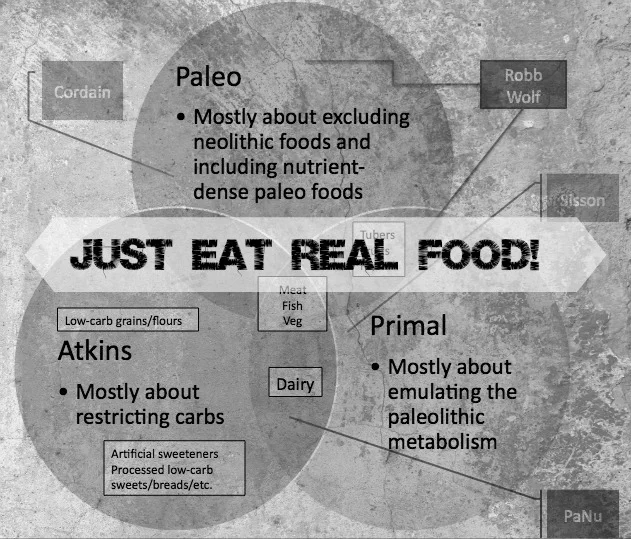Food
Nutrition is a huge and often emotional subject. These are just a few of my thoughts, mainly referencing people whose opinion I respect and outlining what has worked for me and people close to me. Ultimately you need to take responsibility for yourself and do your own research to make an informed decision - find out what works for you. By all means, use this as a guide but do not take my word for it - go forth and find out for yourself.
In a nutshell: just eat real food! Focus on eating natural and locally sourced food which is widely available with little or no processing. In other words, eating the way nature intended. This is commonly referred to as the "paleo" or "caveman" diet (I do not like the word diet as it gives so many wrong messages).
Our current 'diet' is relatively recent - we’ve only been eating this way for about 10,000 years. In contrast, most estimates say that humans have been around for a little over 2 million years. Eating real food naturally focuses us on eating food the way we ate before the last 10,000 years. Nowadays, the standard "diet" features wheat, excess fructose and excess Linoleic acid (Omega-6), often referred to as neolithic agents of disease, which is ruining the health of the majority and causing diseases that should not be part of the natural ageing process. Clearly something is not working.
Popularity
Recent books like The Paleo Solution by Robb Wolf, and The Primal Blueprint by Mark Sisson and Paleo Fitness by the UK's very own Darryl Edwards have caused a surge in the amount of attention paid to paleo and similar ways of eating, and are widely regarded as the reasons for this new way of eating's newfound popularity.
The History of the Paleo Diet
The human body has evolved over millions of years. We’ve only been eating grains and other things since the agricultural revolution, which happened about 10,000 years ago. That might sound like a long time, but it’s really a tiny amount of time in comparison to how long we’ve actually been around. If you were to hold out your arms, with the entire length of your arm span representing human existence, agricultural is represented by the length of a finger nail on one finger.
As it turns out, we’re optimised to eat different foods than we mostly eat now. The copious amounts of sugar and processed foods that permeate our diets just weren’t around when we were cavemen hunting and gathering for food.
And, while we’ve been eating processed grains since agriculture got started, our bodies never quite turned away from their ancestral roots. Not only that, but grains don’t like to be eaten. There’s a whole litany of dangers associated with grains and with eating them. Grains have been shown to damage your gut lining, hurt your immune system, and cause a bunch of other issues. Put simply, when you eat grains, things get messy.
To return to eating like we used to, one should be eating mostly fresh fruits and vegetables, animal proteins (meat, fish, eggs), and nuts in moderation.
Fat Burner vs Sugar Burner
The main reason many people find the paleo diet to be such an effective method for losing fat is that it turns your body from a primarily carb-burning/sugar burning machine in to a fat burning machine.
Here’s how it works:
Your body’s preferred source of energy is fats. Fat is a much slower burning fuel, and it’s more efficient for your body to use. However, due to the abundance of carbohydrates that we consume on a daily basis in the western world, our bodies burn the carbohydrates rather than fat. So, when we take in more carbohydrates than are needed for energy, our bodies stores the rest as fat for later “just in case” (this process is left over from when we needed to store fat in case we couldn’t find food for weeks).
Fortunately (or unfortunately, depending on how you look at it), most people will never really be in danger of “not eating”. We almost never have to resort to using our fat stores for energy, so instead of us eventually burning the fat we’re storing in our bodies, we simply add to it, over and over and over again.
The paleo diet changes a lot of this by doing one simple thing: removing a lot of the simple carbohydrates from your diet.
When this happens, your body can no longer get away with using cheap carbohydrates for energy, and it’s forced to use the fat stores. That’s good! This is how it works:
Without the constant influx of cheap carbohydrates being turned into sugar, your blood sugar drops to a normal level, and your insulin levels begin to regulate. Regulated insulin levels allow a process called lipolysis to occur. Lipolysis is the process of your body releasing triglicerides (fat stores) to be burned as energy. That’s a bunch of big words which basically means that, by reducing the amount of cheap carbohydrates in your system, the paleo diet allows your body to start the process of burning fat.
Good Carbs/Bad Carbs
So, are all carbs bad? No, not all carbs are bad. Some are worse than others, and there’s definitely a sliding scale of carbohydrate badness.
It’s easy to make a jump from “eat fewer carbs” to “all carbs are bad for you”". There’s definitely a sliding scale. Chances are you’ve heard of simple vs. complex carbohydrates, and while that can be a little complicated, the biggest question you’re looking at is how fast your body turns the carbohydrate into sugar. Ones that make the transformation quickly are considered “simple” (and you’ll want to avoid them), while ones that take longer to break down are considered more “complex” (you can eat these in moderation).
Simple carbs break into sugar quicker, and trigger a bigger insulin response. When your insulin levels are elevated, your body is prevented from burning fat through a process called lipolysis. That’s the main reason it’s recommended that you stay away from simple carbohydrates like white bread and pasta. Eating them is not much better than eating straight sugar!
We also need to remember that it's not as simple as fat versus sugar, or carbs versus fat. We must also consider neolithic agents of disease. "It is neolithic agents of disease versus everything else that should really be focused on." And consider also the way food is prepared, and its cultural context such as food as reward or emotional eating. Food is fuel, and also pleasure-giving.
What Can You Do?
Develop an understanding and awareness of what you are eating, where it comes from and what good - or bad - it does for you.
Just eat real food - if it has to go through a long process to make it editable, chances are it's not "real food"!
Realise the concept of "breakfast" or "lunch" only foods is bizarre and meals should generally be nutritious and filling, regardless of the time of day. My infant son has soup made from spring greens and butternut squash in lieu of porridge or cereals each morning! Hot, tasty, "carby" and nutritious, and he has no concept that soup is not "breakfast" food.
Accept that a lot of things in our modern diet are deeply entrenched in society's psyche - bread, sugar, grains. We have a lot of addictions - refined sugar is six times more addictive than natural sugar and used in most products, from bread to keep it fresh on the shelf to frozen products to stop freezer burn! Artificial sweeteners are probably worse. As with any addiction, it can be difficult to shrug off what we have been told for so long! It takes time to re-train ourselves into a new way of thinking and eating.
Don't beat yourself up! Eating well all the time is the aim, but let's not forget - "bad" things are tasty and delicious. Pizza, ice cream, toast...a little bit of bad some of the time is no bad thing. A little bit of pleasure derived from "bad" foods is not a bad thing in itself. Aim for the 90/10 - or even 80/20 - rule and you're golden!
And finally - don't be confined to one singular orthodoxy. The paleo approach is great but we have already lost when it becomes the next "big thing" or the new fad diet. Consider the work of Chris Kressler who encourages the flexibility on "what is paleo", how we should do our own research and prefers it to be a template rather than a diet.

